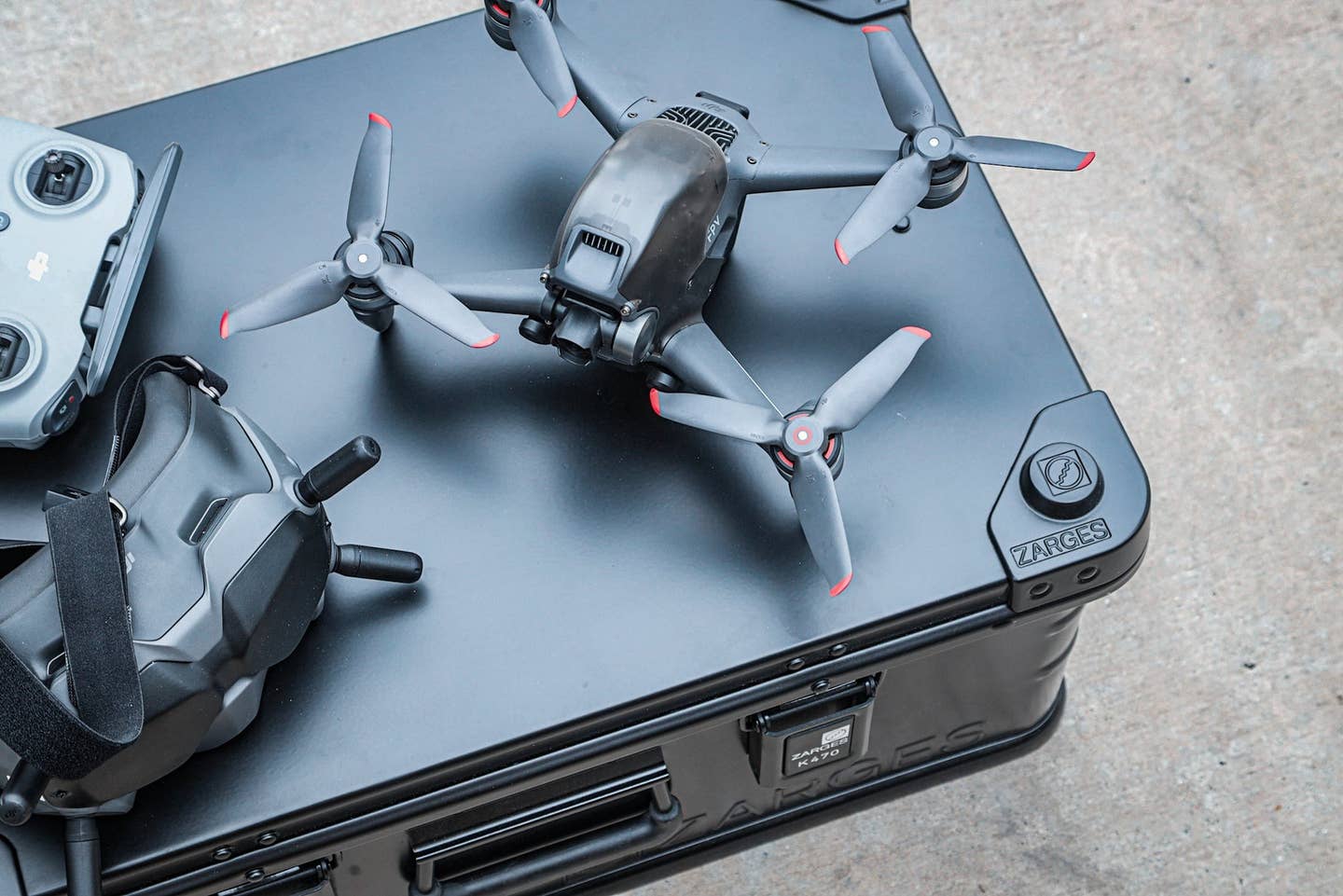Personal locator beacons can mean the difference between life and death. This guide will help you find a PLB you can rely on. [Credit: CanvaPro]
Editor’s note: The following article is not intended to be a ranking, but is only to serve as a list of possible options. As the saying goes, your mileage may vary.
Simply put, a personal locator beacon can mean the difference between life and death when you find yourself in a worst-case scenario when flying. Personal locator beacons, or PLBs, alert authorities that immediate help is required by the user and allow the ground control to properly locate the user in need.
There is no shortage of personal locator beacons on the market, so how can you be certain you’re purchasing the best one for your upcoming flights? Read on to learn more about how PLBs work, and which one will fit your flying needs best.
Quicklook: Personal Locator Beacons
7 Personal Locator Beacons
Personal locator beacons are more than a recommendation for pilots, they’re a must have when safety is concerned. Your ideal personal locator beacon will vary depending on your needs, so read on to find out which one is best for your future flying endeavors!
ACR ResQLink View - Model PLB 425
The newest of ACR’s personal locator beacons on the market, the ACR ResQLink View is the small, lightweight personal locator beacon you can trust with any of your aviation adventures. Relay your location with ease.
The strobe feature keeps rescues simple day or night. Be confident with your safety in all your flights.
Dimensions: 4.25 x 2.03 x 1.49 inches
Weight: 5.22 ounces
Warranty: 5-year limited warranty
Battery Life: 28 hours - Certified for 5 years
Benefits:
- Free beacon registration
- Built-in display
- Buoyant
Disadvantages:
- Factory battery replacement required after 5 years
Ocean Signal RescueMe PLB1
One of the smallest personal locator beacons on the market, the Ocean Signal RescueMe PLB1 is a great value for any pilot. Never worry about space versus safety when you have this beacon on board your flight.
Operate your RescueMe beacon with a single hand if necessary and ensure you’re covered in light and dark with the integrated strobe light.
Dimensions: 3 x 2.1 x 1.3 inches
Weight: 4.1 ounces
Warranty: 7 years
Battery Life: 24+ hours, 7 years
Benefits:
- No subscription costs
- Spring loaded flap to avoid misuse
Disadvantages:
- Not buoyant
Wireless Concepts Micro PLB
One of the first civilian personal locator beacons on the market, the Micro PLB is a compact beacon for any pilot. With easy one hand activation, this beacon offers ease of use in any situation. Record and save your transmissions anytime you need with the Micro PLB.
Dimensions: 2.3 x 1.1 x 4.75 inches
Weight: 8 ounces
Warranty: 5 years
Battery Life: Lithium metal batteries. 48 hours/5 years
Benefits:
- No subscription costs
- Simple operation
Disadvantages:
- No display
- No additional features
Garmin InReach Mini
Looking for a personal locator beacon that allows easier communication in your time of need? The Garmin InReach Mini is the personal locator beacon that keeps you safe in an emergency while also allowing you to track your flight and send and receive text messages.
Pair your Garmin InReach Mini with your Garmin Pilot app and make calls from your cockpit no matter where you are!
Dimensions: 2 x 1.3 x 3.9 inches
Weight: 3.52 ounces
Warranty: Limited warranty
Battery Life: Rechargeable lithium battery, up to 90 hours in default tracking mode, up to 20 days in power saving mode
Benefits:
- 2-way text messaging
- Mobile pairing available
Disadvantages:
- Satellite subscription is required (as with all satellite messenger PLBs)
- Cannot be submerged in water
Garmin InReach Explorer+
When you need a way to stay in touch in the air, the Garmin InReach Explorer+ is the personal locator beacon that has you covered. With 2-way text messaging, you can always stay in touch in the cockpit.
Preloaded TOPO maps, a built-in barometric altimeter, and an accelerometer are just a few of the features this beacon comes loaded with.
Dimensions: 1.5 x 2.7 x 6.5 inches
Weight: 8 ounces
Warranty: Limited warranty
Battery Life: Rechargeable lithium ion, 30 hours
Benefits:
- Built-in digital compass
- Mobile pairing available
Disadvantages:
- Shorter battery life
Garmin InReach SE+
If you’ve been eyeing the Garmin InReach Explorer+, but you don’t quite need all the features and you’d like a lower price point, the InReach SE+ is the beacon for you. Similar to the Explorer+, the SE+ simply has less features.
Stay in touch in any flying situation with this rugged option.
Dimensions: 1.5 x 2.7 x 6.5 inches
Weight: 8 ounces
Warranty: Limited warranty
Battery Life: Lithium polymer batteries, up to 36 hours in default mode
Benefits:
- Transflective color display
- Built-in digital compass
- Mobile pairing available
Disadvantages:
- Fewer features than the Explorer+
Spot X Satellite Messenger
The keyboard on the Spot X Satellite Messenger makes staying in touch a breeze, whether in the cockpit or on the ground. Every pilot that needs to relay information loves the ease of use this beacon offers.
The Spot X provides a nice screen size that’s easy to read and the ease of use is appealing for all pilots.
Dimensions: 2.9 x 94 x 6.54
Weight: 7 ounces
Warranty: Limited warranty
Battery Life: Lithium polymer battery. 24 hours to 10 days, usage dependent
Benefits:
- Social-media compatible
- Tracking interval options available
Disadvantages:
- Larger size than similar PLBs
- Battery life varies
How Do Personal Locator Beacons Work?
When a personal locator beacon is activated, it immediately emits a distress signal in two forms. Both a digital signal at 406 MHz and a lower analog signal at 121.5 MHz are sent out. Once the signal is received by a ground control center, they are forwarded to the proper RCC, or Rescue Coordination Center.
Within minutes, local authorities can be contacted to prepare for the search and rescue mission. When safety is concerned, minutes always matter. Why question if you have the best personal locator beacon for you? Be assured of your purchase with the help of our personal locator beacons comparisons in this article!
What To Consider With Personal Locator Beacons
Are you looking to stay in touch while in the air on your next flight? Or do you simply want the added peace of mind a PLB provides? When purchasing a new personal locator beacon, pilots should consider what exactly their flying requirements are to ensure they can bring along the best personal locator beacon for their in-flight needs.
Battery Life
The battery life of your personal locator beacon will depend greatly on the usage and operation. When in their default modes, battery life is far longer and can last for weeks. When transmitting, all personal locator beacons are required by law to transmit for a minimum of 24 hours.
User Interface
GPS devices have somewhat changed the user interface of personal locator beacons over the years, but they continue to offer ease of use for every pilot they serve. Single hand use is a commonality amongst many PLBs and simplicity remains a leading factor as safety is always the priority.
Packaging Dimensions
Personal locator beacons are meant to be compact to ensure added safety is never a stressor when packing your items into your cockpit. If you’ve been having to make room for your old PLB, it may be time to be in the market for a new one that can easily fit in your flight bag.
Screen Size
Sun-friendly and transflective color displays are both options you may have when looking to purchase a new personal locator beacon. While PLBs continue to provide outstanding safety features, the screen size remains on the smaller side, often allowing for single hand use when flying.
Warranty
The majority of personal locator beacons come with 5–7-year warranties. This often requires the PLB to be sent back to the manufacturer at the end of its life for a factory battery replacement.
Price
The best personal locator beacons don’t come cheap, but when safety is in question, price isn’t the largest factor. Ranging from around $200 to over $400, you’ve got the options you need. With many of the satellite messenger personal locator beacons, a subscription is required. When considering the safety these provide, the additional expense is minimal.
Stay In Touch Whether In the Air or On the Ground!
Personal locator beacons continue to pave the way for safe rescues for all types of outdoorsmen, flying enthusiasts included. Pilots around the world utilize personal locator beacons when they’re in the air because safety is never something to second guess.
Whether you’re looking to keep every flight safe, or if you’re looking for other crucial flying accessories, subscribing to FLYING Magazine newsletter is the best way to stay ahead of what you need!
FAQ
What is a personal locator beacon used for?
Personal locator beacons or PLBs, are used to send out a one-way distress signal in the case of emergency. Satellite messengers, also commonly referred to as PLBs, offer two-way communication.
How long does a PLB last?
The battery life for personal locator beacons varies amongst them, but they are all required to have a battery that can transmit for at least 24 hours. Many PLBs last longer than that, especially depending on operation.
What happens when you set off a PLB?
When a personal locator beacon is activated, a distress signal is immediately sent to a satellite in two forms. Both a digital signal at 406 MHz is sent as well as a lower analog signal at 121.5 MHz.

Sign-up for newsletters & special offers!
Get the latest FLYING stories & special offers delivered directly to your inbox






